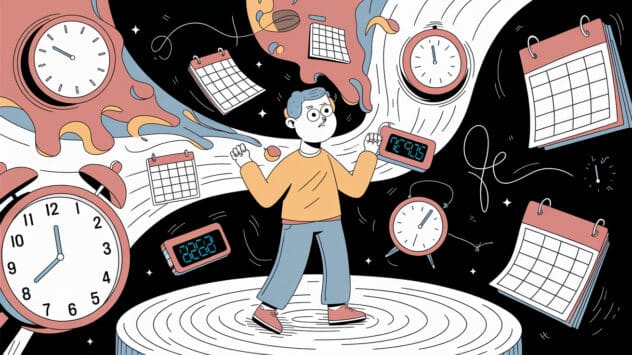The Pros and Cons of Melatonin: Your Comprehensive Guide to Sleep Better.
So, you’ve heard about melatonin and its reputation as the “sleep hormone,” right? Let’s dive into what melatonin is all about and whether it’s the supplement you need for those restless nights. But hold your horses before you rush off to buy some, let’s explore the pros and cons of melatonin supplementation to see if it’s the right fit for you!
What Is Melatonin?
Melatonin is a naturally occurring substance produced by the pineal gland in your brain. It plays a pivotal role in regulating your circadian rhythm, essentially, your body’s internal clock that tells you when it’s time to sleep and when it’s time to wake up. As a supplement, melatonin has become incredibly popular, especially among those of us who sometimes find ourselves tossing and turning instead of snoozing. But hold on! Before you rush out to grab a bottle, let’s explore the pros and cons of melatonin supplementation to see if it’s right for you.
The Pros and Cons of Melatonin Supplementation
- Helps Regulate Sleep Patterns
For many, melatonin is a gentle nudge that helps establish a healthy sleep routine. If you’re struggling with insomnia or have irregular sleep patterns, melatonin can assist in getting your internal clock back on track. By promoting drowsiness, it may help you fall asleep faster, turning those late-night brain races into a cozy snooze-fest before the first lap is even finished. - Jet Lag Relief
Are you a frequent flyer? Melatonin can be a lifesaver when dealing with jet lag. By helping your body adjust to new time zones more quickly, melatonin reduces those too-common symptoms like fatigue and irritability, making travel a bit more enjoyable. - Non-Habit Forming
Unlike many prescription sleep aids, melatonin isn’t addictive. It works with your body’s natural processes instead of sedating your brain, which makes it a safer option for occasional sleeplessness. - Promotes Better Sleep Quality
Not only does melatonin help you drift off like a sleepy lamb on a cloud, but it also cranks up the quality of your sleep to VIP status. This is especially beneficial for those who wake up more often than a toddler at a sleepover, melatonin swoops in to help you hit the deep, restorative snooze button that even your dreams will thank you for. - May Help with Shift Work Disorder
If your job has you working odd hours, melatonin can help your body adjust. Regular use may make it easier for you to sleep during the day and stay alert at night, improving your overall sleep quality.
The Downsides of Melatonin Supplementation
- Overuse Can Disrupt Sleep
While melatonin can be an effective sleep aid, over-reliance might actually interfere with your body’s natural sleep-wake cycle. Taking it too often or in high doses can make it harder for your body to regulate sleep naturally. - Possible Side Effects
Though generally considered safe for short-term use, some individuals might experience mild side effects, such as:- Drowsiness the next day
- Headaches
- Dizziness or nausea
- Mood changes (though this is rare)
- Not Suitable for Everyone
Melatonin isn’t for everyone. If you have certain medical conditions or are pregnant or breastfeeding, you should consult a healthcare provider before taking it. It can also interact with other medications, so it’s best to check first. - Varying Effectiveness
Melatonin’s effectiveness can vary from person to person. While some find great success with minimal doses, others may not notice any difference. The timing and dosage can make all the difference. It might take a bit of experimentation to find what works for you. - Long-Term Safety Uncertainty
Although melatonin is generally safe for short-term use, there isn’t a wealth of research on its long-term effects. Regular use might raise concerns about hormone regulation and overall hormonal balance, so it’s wise to use it with caution.
How to Use Melatonin Safely
If you’re considering melatonin as a supplement, here are some tips:
Unlock peak brain performance with science-backed biohacks. Join free now & get your guide for just £4.99 (45% off)!

- Start with a Low Dose: Begin with the lowest effective dose (usually 0.5 to 1 mg) and adjust as necessary. Higher doses don’t always mean better sleep.
- Timing is Everything: Take it about 30 to 60 minutes before bed to give it time to kick in.
- Use it for Short-Term Issues: Melatonin is best for temporary sleep disruptions—consult your healthcare provider for chronic sleep issues.
- Limit Light Exposure: Since melatonin production is influenced by light, dim the lights and avoid screens before bedtime for optimal results.
So…
Melatonin can be a useful tool in your sleep arsenal, particularly for short-term issues like jet lag or occasional sleeplessness. However, as with any supplement, it’s essential to approach melatonin mindfully. Always consult with a healthcare provider before incorporating it into your routine. Especially if you have any underlying health conditions or take other medications.
When used appropriately, melatonin can be a safe and effective option for better sleep. This can help you regain control over your nightly routine and wake up feeling refreshed and ready to tackle the day.
Join Our Community at Herbal Biohacker, where we share real, practical ADHD hacks without the fluff. Whether you are med free, reducing meds, or just looking for extra support, we have got you covered.







